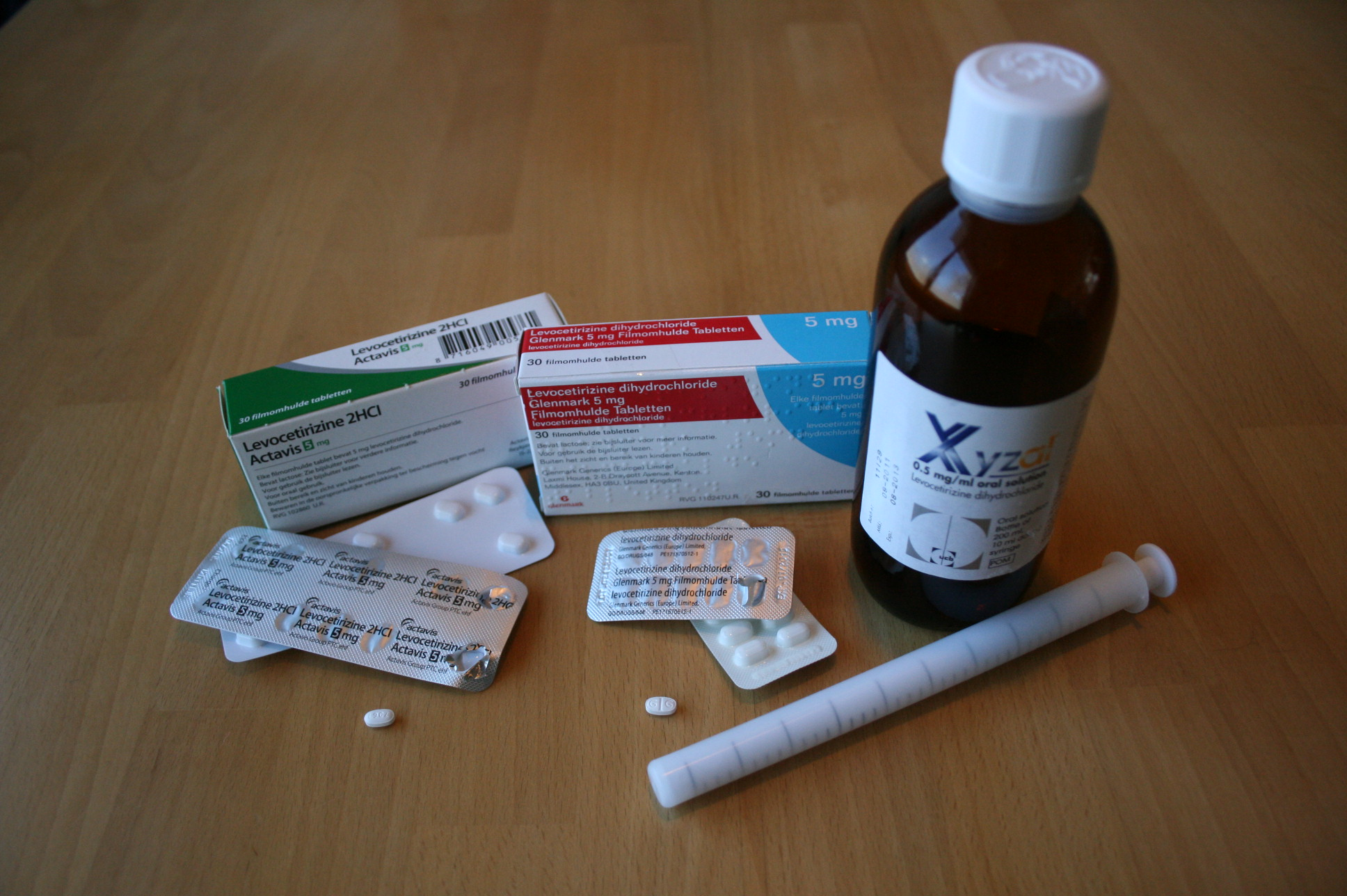| drug | Levocetirizine |
| classification | Antihistamine, H1 receptor antagonist |
| pharmacokinetics | Levocetirizine is a chiral molecule. Following oral administration, it is rapidly absorbed. Peak plasma concentrations are typically achieved within 1-2 hours. High plasma protein binding (approximately 90%) contributes to its longer half-life. The drug is metabolized primarily in the liver, and its metabolites are excreted in the urine and bile. The half-life is approximately 6-8 hours, allowing for once or twice-daily dosing. |
| suggested dosage | | adult | Typically 5 mg once daily for allergic rhinitis and urticaria. | | alternative dosage | Some preparations may have slightly different dosages (check the product information for detailed information), however, 5 mg once daily is a common and effective dose for most indications. | | patient specific details | Individual dosages should be tailored to the specific medical needs of the patient, as advised by their physician. A 25-year-old male weighing 70 kg is likely to have a standard metabolism, and the suggested dosage should be a starting point for the clinician. |
|
| indications | Levocetirizine is primarily used to treat allergic rhinitis (hay fever), urticaria (hives), and other allergic reactions. It can also be used to alleviate symptoms of chronic idiopathic urticaria. |
| safety in pregnancy | Limited data on use in pregnancy. Consult with a healthcare professional for the most appropriate course of action, weighing the potential benefits against the potential risks. |
| safety in breastfeeding | Levocetirizine is considered safe for use during breastfeeding. However, consult with a pediatrician and a healthcare professional for the most appropriate course of action, weighing the potential benefits against the potential risks. Monitor infant for any adverse reactions. |
| side effects | | 1 | Drowsiness | | 2 | Fatigue | | 3 | Headache | | 4 | Nausea | | 5 | Dry mouth | | 6 | Constipation | | 7 | Diarrhea | | 8 | Gastrointestinal upset | | 9 | Muscle aches |
|
| alternatives | |
| contraindications | | 1 | Hypersensitivity to levocetirizine or any of its components. | | 2 | Use with caution in patients with hepatic or renal impairment, as dosage adjustments may be needed. |
|
| interactions | | 1 | Alcohol may increase the sedative effects of levocetirizine. | | 2 | Avoid concomitant use with strong CYP3A4 inhibitors. Consult a physician before combining with other medications. |
|
| warnings and precautions | | 1 | Can cause drowsiness, caution is advised when operating machinery or driving. Monitor for signs of allergic reactions. | | 2 | Do not take with other medications that interact with its mechanism of action unless advised by your physician. | | 3 | Do not exceed the recommended dose. | | 4 | Discontinue use and contact your physician if side effects worsen or if new or unusual symptoms appear. |
|
| additional information | | 1 | Levocetirizine is available in various dosage forms like tablets, syrup. | | 2 | Consult a physician before using if pregnant, breastfeeding or have underlying medical conditions. | | 3 | This information is for general knowledge and does not constitute medical advice. Always consult with a qualified healthcare professional for any health concerns or before making any decisions related to your health or treatment. |
|
